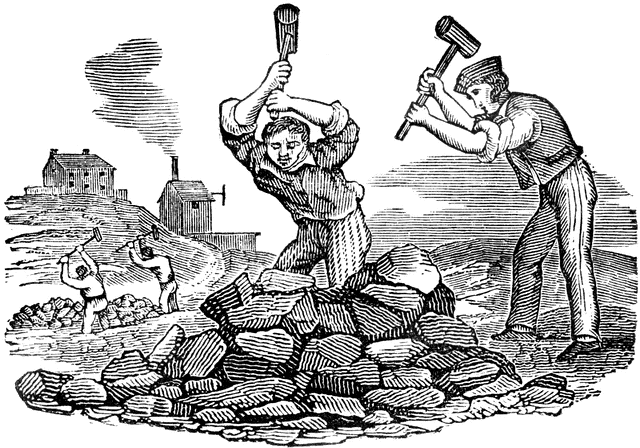The Christian person and (paid) work
|
Some preliminary thoughts
Although theologians have at times written about Christian faith and (paid) work, much of it is unhelpful. Too much of the so-called ‘theologies of’ or ‘the spirituality of’ work is sentimental, abstract or patronising, written by those unacquainted with the demands, stresses, compromises and challenges of selling their labour in complex industrial, post-industrial, commercial and private and public settings. Some peddle such ideas as ‘Employees are to work as though God were their boss’ (many of us have worked for bosses who think they are God) or the slightly reassuring ‘Exploitation of workers by employers does not escape God's notice’ - which no doubt acts as an effective break on exploitative or bullying practice... In short, many of those who write about Christian faith and paid work are not qualified to do so, and the Christians that are qualified by their experience of being Christian people at work (mainly, by definition, lay and non-academic) lack the voice, the encouragement or the motivation. What might the issues be? These are not as clear cut as may be first thought. One - the most obvious and the one most popular with writers on this - is to do with the attitude and behaviours to be commended to Christians in their work places (honesty, reliability, care, for example). Another - less common by far - is to do with structural questions, especially those related to work-place authority, obedience to bosses and corporate demands. There are the myriad manifestations of ‘sin’ that crop up in the world of work often heavily cloaked (‘expediency’, the drive to please bosses, shareholders, elected officials, regulatory bodies) and the burden placed on so many people by excessive workloads, ‘sensible’ regulatory demands, subtle pressure to take work home and not so subtle pressure to hit those ‘vital’ performance or profit targets. Marx is nowadays out of fashion but much of his analysis of the crimes and compromises of the world of work (premised as so much of it is on capital and maximising financial profit) rings true (his prescription was less helpful, as history appears to indicate). Chaplains ‘to’, not priests ‘within’ the workplace The church has generally favoured the model of appointing stipendiary priests as chaplains to workplaces: the industrial chaplains fitted this model and more recently there have developed such chaplains to shopping centres. Even London’s Docklands now has a chaplain. No doubt this model has some value, though it would be interesting to see some objective evaluation. It is though essentially pastoral, rarely prophetic and in too many ways is a ‘bolt on’ to the workplace and not a witness or ministry rooted within it. I've heard some exponents of this model speak of their ministry to ‘senior executives’ and 'top people' with little reference to those at the lower levels, except in a fuzzy pastoral sense. What does it mean - really mean - to ‘minister’ to, say, a clutch of international bank HQs in London’s Docklands, without any critical engagement with the structures of money lending and making, and the stark contrast between pay for those high up and those low down, or the ethics of lending and debt recovery? Is the church there to bless all these structures, or might it sometimes be called to smash them? No thought, no voice I repeat the claim that hardly anything is said by the church or theologians about the business of selling our labour that is remotely useful. I confess that I don't entirely know what this might look like were it to appear. I suspect that it would be pretty hard-hitting about the kinds of jobs that a conscientious Christian might take (and not take), as well as more about the how of doing our jobs. But it would need to reckon with the complexities - and insecurities - of paid work, and offer real help and encouragement. |
"The primary action of the Church in the world is the action of its members in their daily work" Leslie Newbigin |
